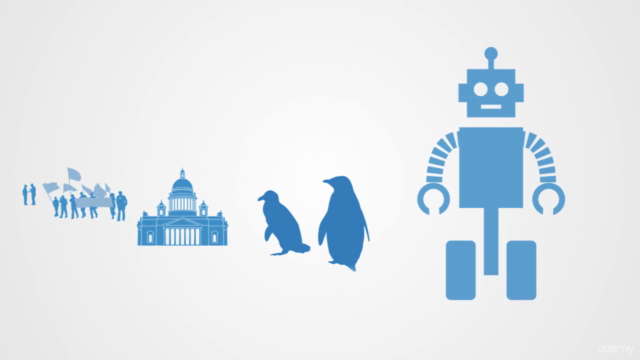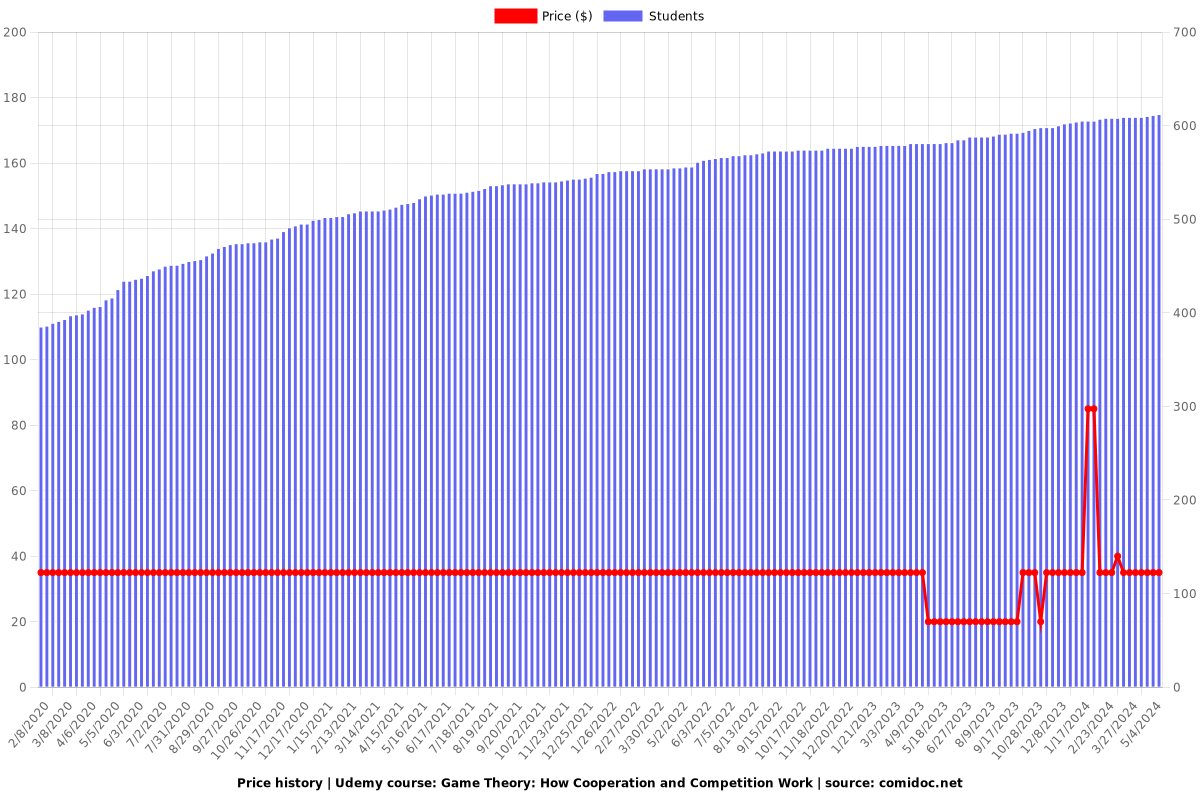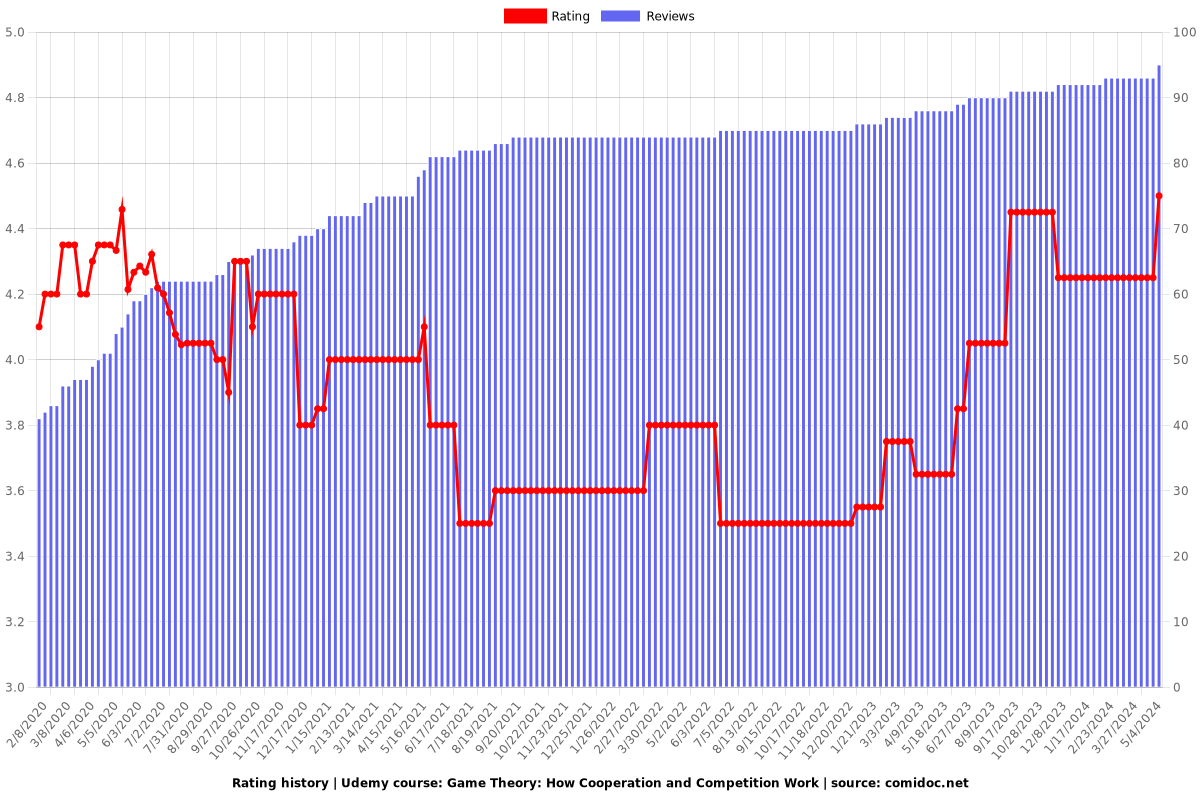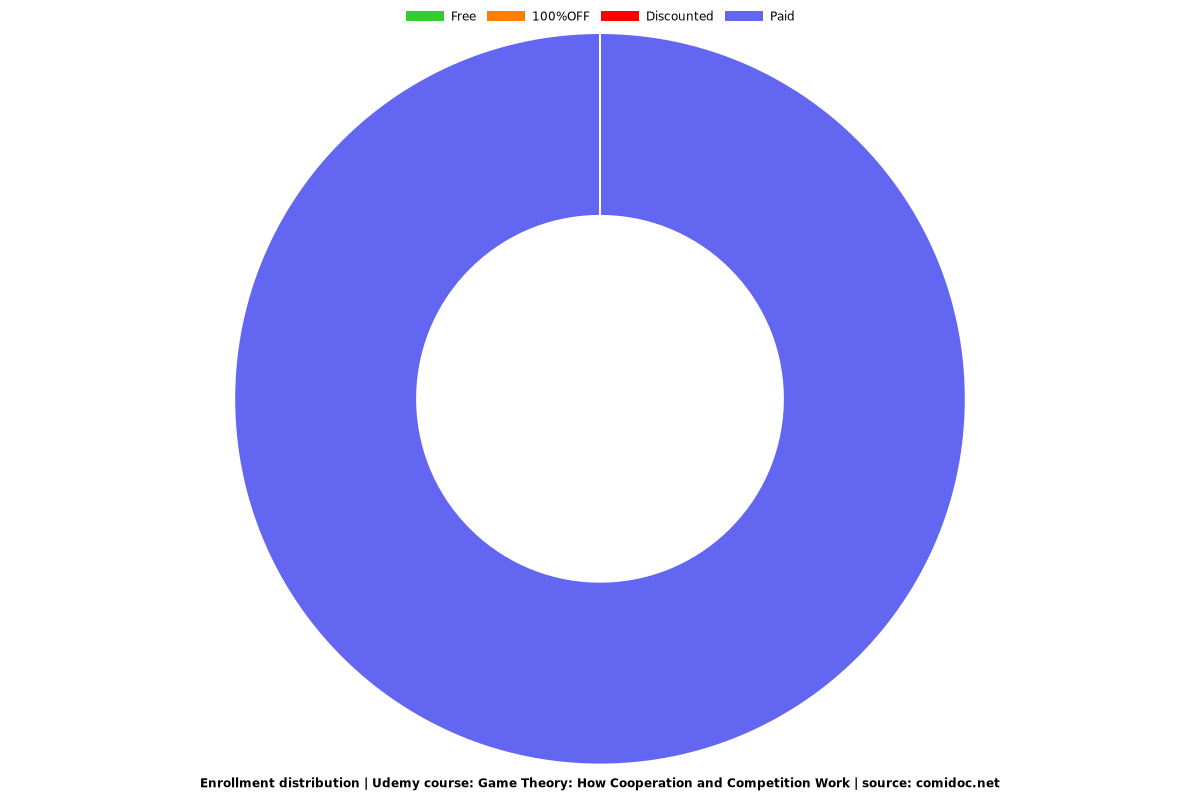Game Theory: How Cooperation and Competition Work
Learn about the science of cooperation and competition in business, economics, politics and everyday life

What you will learn
By the end of this course you will be able to understand and use the formal models of game theory to interpret situations of both cooperation and competition
Why take this course?
As we watch the news each day, many of us ask ourselves why people can't cooperate,
work together for economic prosperity and security for all, against war, why can't we come
together against the degradation of our environment?
But in strong contrast to this, the central question in the study of human evolution is why
humans are so extraordinary cooperative as compared with many other creatures. In most
primate groups, competition is the norm, but humans form vast complex systems of
cooperation.
Humans live out their lives in societies and the outcomes to those social systems and our
individual lives is largely a function of the nature of our interaction with others. A central
question of interest across the social sciences, economics, and management is this question
of how people interact with each other and the structures of cooperation and conflict that
emerge out of these.
Of course, social interaction is a very complex phenomenon, we see people form
friendships, trading partners, romantic partnerships, business compete in markets, countries
go to war, the list of types of interaction between actors is almost endless.
For thousands of years, we have searched for the answers to why humans cooperate or
enter into conflict by looking at the nature of the individuals themselves. But there is another
way of posing this question, where we look at the structure of the system wherein agents
interact, and ask how does the innate structure of that system create the emergent
outcomes.
The study of these systems is called game theory. Game theory is the formal study of
situations of interdependence between adaptive agents and the dynamics of cooperation
and competition that emerge out of this. These agents may be individual people, groups,
social organizations, but they may also be biological creatures, they may be technologies.
The concepts of game theory provide a language to formulate, structure, analyze, and
understand strategic interactions between agents of all kind.
Since its advent during the mid 20th-century game theory has become a mainstream tool for
researchers in many areas most notably, economics, management studies, psychology,
political science, anthropology, computer science and biology. However, the limitations of
classical game theory that developed during the mid 20th century are today well known.
Thus, in this course, we will introduce you to the basics of classical game theory while
making explicit the limitations of such models. We will build upon this basic understanding by
then introducing you to new developments within the field such as evolutionary game theory
and network game theory that try to expand this core framework.
- In the first section, we will take an overview of game theory, we will introduce you to the
models for representing games; the different elements involved in a game and the various
factors that affect the nature and structure of a game being played.
2. In the second section, we look at non-cooperative games. Here you will be introduced to the
classical tools of game theory used for studying competitive strategic interaction based
around the idea of Nash equilibrium. We will illustrate the dynamics of such interactions and
various formal rules for solving non-cooperative games.
3. In the third section, we turn our attention to the theme of cooperation. We start out with a
general discourse on the nature of social cooperation before going on to explore these ideas
within a number of popular models, such as the social dilemma, tragedy of the commons
and public goods games; finally talking about ways for solving social dilemmas through
enabling cooperative structures.
4. The last section of the course deals with how games play out over time as we look at
evolutionary game theory. Here we talk about how game theory has been generalized to
whole populations of agents interacting over time through an evolutionary process, to create
a constantly changing dynamic as structures of cooperation rise and fall. Finally, in this
section we will talk about the new area of network game theory, that helps to model how
games take place within some context that can be understood as a network of
interdependencies.
This course is a gentle introduction to game theory and it should be accessible to all. Unlike
a more traditional course in game theory, the aim of this course will not be on the formalities
of classical game theory and solving for Nash equilibrium, but instead using this modeling
framework as a tool for reasoning about the real world dynamics of cooperation and
competition.
Screenshots




Reviews
Charts
Price

Rating

Enrollment distribution
